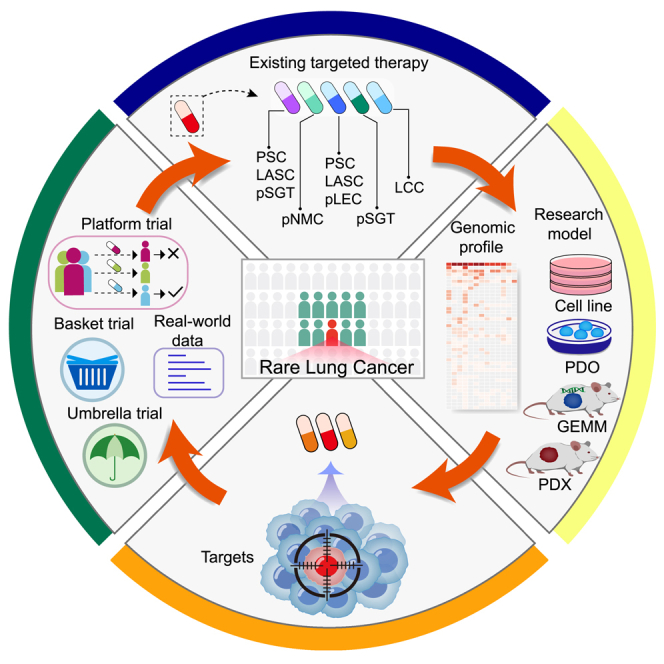- Record: found
- Abstract: found
- Article: found
Targeted therapy for rare lung cancers: Status, challenges, and prospects

Read this article at
Abstract
Lung cancer causes the most cancer-related deaths worldwide. In recent years, molecular and immunohistochemical techniques have rapidly developed, further inaugurating an era of personalized medicine for lung cancer. The rare subset of lung cancers accounts for approximately 10%, each displaying distinct clinical characteristics. Treatments for rare lung cancers are mainly based on evidence from common counterparts, which may lead to unsolid clinical benefits considering intertumoral heterogeneity. The increasing knowledge of molecular profiling of rare lung cancers has made targeting genetic alterations and immune checkpoints a powerful strategy. Additionally, cellular therapy has emerged as a promising way to target tumor cells. In this review, we first discuss the current status of targeted therapy and preclinical models for rare lung cancers, as well as provide mutational profiles by integrating the results of existing cohorts. Finally, we point out the challenges and future directions for developing targeted agents for rare lung cancer.
Graphical abstract
Abstract
Jianxin Xue and colleagues first briefly described rare lung cancers, then summarized the clinical efficacy of FDA-approved targeted agents. Furthermore, they discussed potential targets, with comprehensive mutational profile provided, and the research model status. They finally highlighted the challenges and prospects in developing targeted therapy for rare lung cancers.
Related collections
Most cited references189
- Record: found
- Abstract: found
- Article: not found
Global cancer statistics 2020: GLOBOCAN estimates of incidence and mortality worldwide for 36 cancers in 185 countries
- Record: found
- Abstract: found
- Article: not found
Cancer statistics, 2022
- Record: found
- Abstract: found
- Article: not found
